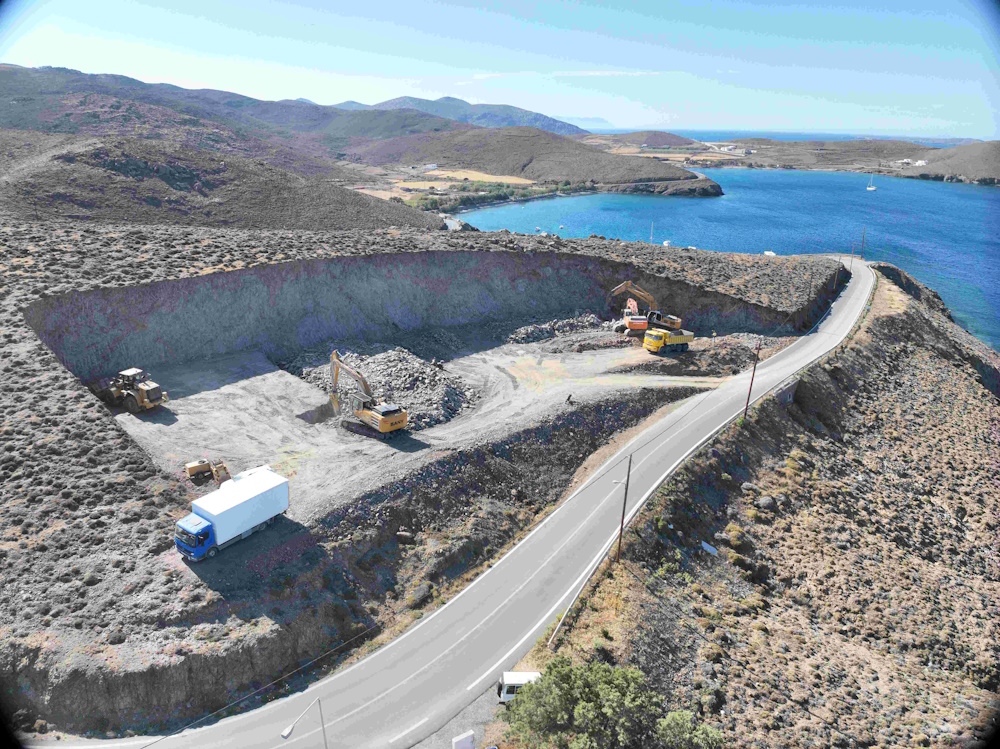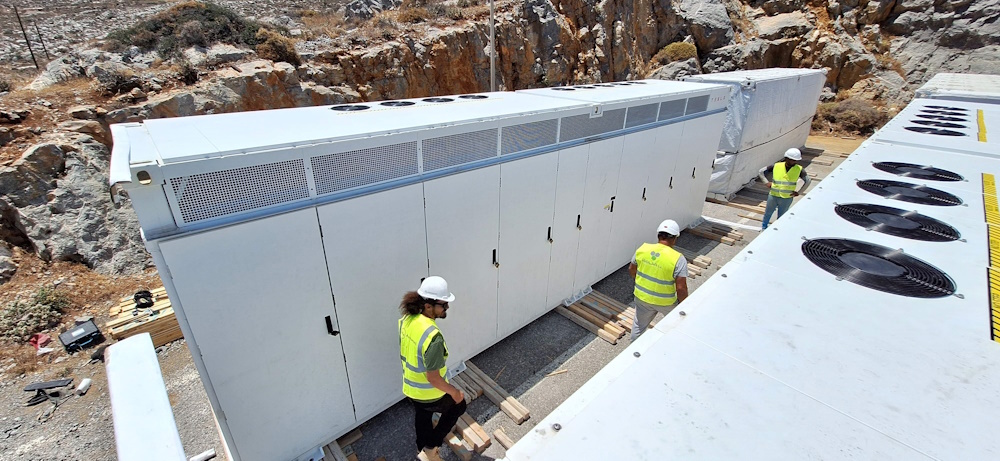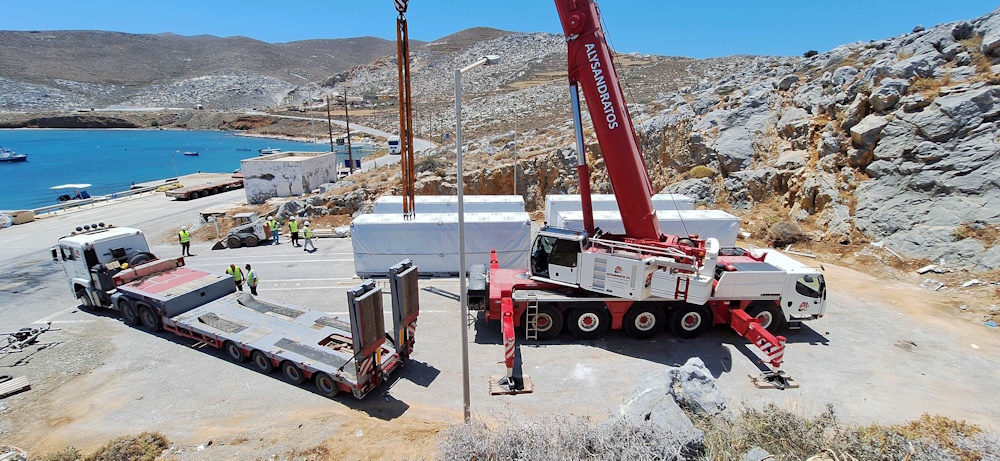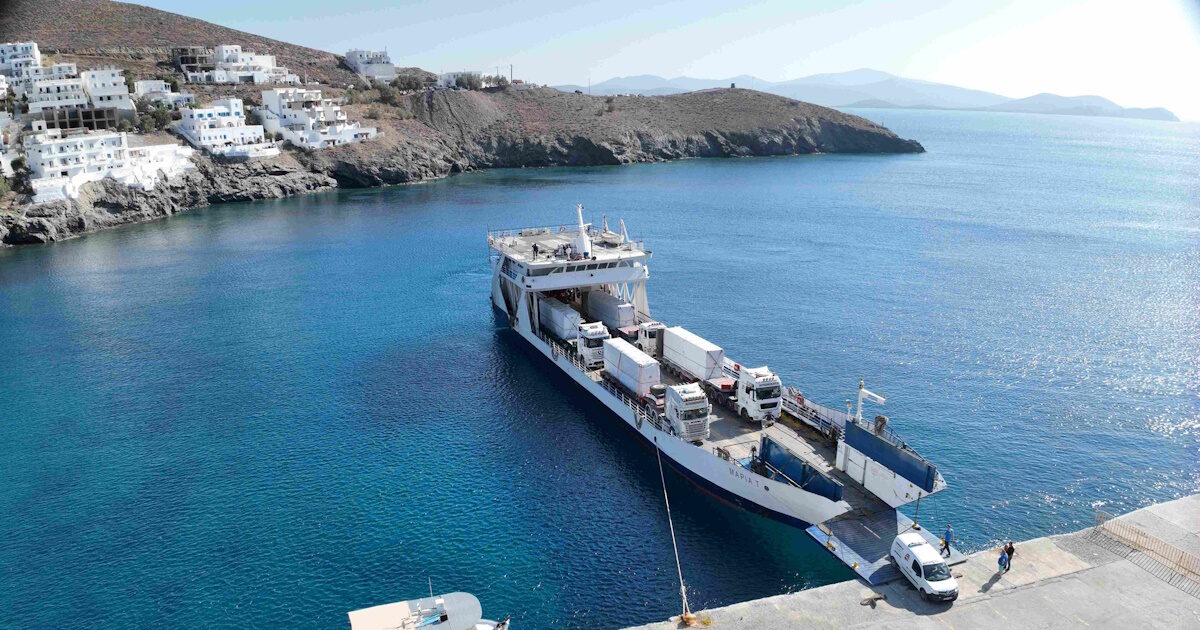Demonstrating the commitment to energy transformation and innovation, the group PPC started constructing a special pilot hybrid project at Astypaleawhich will combine solar energy and electrochemical storage.
Given the multitude of small islands of Greece and proclaimed the goal of detachment from imported fossil fuels, every small island is also a betting optimal incorporation of renewable energy and smooth withdrawal of old polluting oil units. Specifically, after the highly successful operation of the Ikaria Hybrid Energy Project, PPC’s 100% subsidiary, “PPC Renewable”, proceeds to build yet another hybrid station, with the ultimate goal of upgrading Astypalaia to a green island.
The hybrid station will consist of a photovoltaic park, 3.53MW, and a storage unit with a total capacity of 14.12 MWh. The combination of production and storage allows for the optimal utilization of the strong solar potential of the area, storing surplus production and its use later when there is no RES production.
About 6,000 bifacial photovoltaic frames will be used to build the hybrid station, while the maximum absorption power of the storage unit will amount to 8 MW. The station’s annual production is estimated to reach 6.55GWH, with the aim of covering more than 80% of the island’s needs and preventing an emission of about 5,700 tonnes of CO2 per year.
The construction of the project is expected to be completed by the end of 2025 by enhancing energy security on a small island in the “Aegean Butterfly” with special characteristics. Thousands of tourists are added to about 1,400 permanent residents in the winter, which drastically increase energy demand during these months.
The PPC Group has been investing in RES for years and currently has a total portfolio of RES projects of 6.2 GW in Greece, Romania, Italy and Bulgaria. The aim of the PPC Group’s investment plan is to have a RES installed to reach 11.8 GW by 2027.
At the same time, the PPC Group also invests dynamically in energy storage. Based on the investment plan for three years 2025-2027, the company is planning the operation of 600 MW Bess storage projects, which are currently at various stages of implementation in Greece and Southeast Europe.
In addition, the PPC Group also develops pumping projects, which act as natural batteries. Specifically in Western Macedonia, he manufactures one project in the heart mine with a capacity of 320 MW for 8 hours, and the second in the South Field mine, with a capacity of 240 MW for 12 hours.





PPC Deputy Chief Executive Officer Konstantinos Mavros said: “The special pilot hybrid project of the PPC Group in Astypalaia is a miniature of our country’s energy future, as it is a project that combines solar energy with electrochemical storage. The combination of renewable energy production and then the ability to store this energy to use hours when there is no RES production is the answer to the issue of refreshing sources and enhances the stability of the system. The PPC Group faithful to the vision of energy adequacy and green transition will continue to innovate in the interest of consumers and society. “
